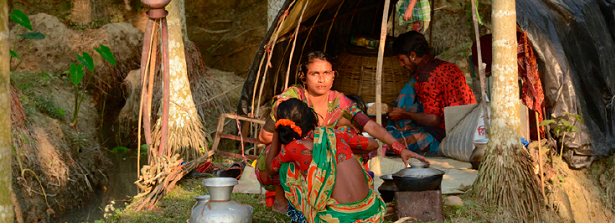IOB – Review of Dutch food security policy 2012-2016

The Policy and Operations Evaluation Department (IOB) of the Ministry of Foreign Affairs has presented its review results of the Dutch food security policy in the period 2012-2016. IOB assessed the contribution of the Dutch food security policy to higher agricultural production and farm incomes, better access to nutrition and an enabling business environment. It also examined to what extent these results contributed to the global challenges of ending hunger and malnutrition, and of developing sustainable food systems that will feed the world also in the long-term.
Please find the report here (in English) and here (in Dutch). A policy response by the Dutch minister for Foreign Trade and Development Cooperation can be found here (in Dutch).
Findings of the policy review
- Dutch food security policy is relevant, given the global challenges of eliminating hunger and malnutrition, and to feed the world also in the long-term.
- Many agricultural projects, especially in research and extension, have contributed to higher production and income.
- Projects that worked on nutrition through social safety nets, food fortification, and nutritional awareness, were successful in reaching vulnerable groups.
- Projects that improved the enabling business environment, especially investments in rural roads, have contributed to agricultural development and food security.
- Dutch food security policy has contributed only to a limited extent to reduced malnutrition, because most agricultural projects did not have nutrition as their primary objective, nor were food insecure people their primary target group.
- Little is known about cost-effectiveness, about upscaling of pilots, and about the conditions under which public private partnerships contribute to development objectives.
- Dutch embassies in partner countries play an important role in assuring the relevance of the food security programme, and could play a larger role in enhancing synergy in the programme.
Lessons of the policy review
- Distinguish different types of smallholder farmers: those that can ‘step up’ to commercial farming; those that can ‘step out’ and find work outside agriculture, and those that ‘hang in’, for whom subsistence farming remains their only livelihood option for the near future.
- Expand the programme from an agriculture and value chain approach to an integrated food systems approach, from production to consumption.
- Use the strengths of a value chain approach to make food systems more sustainable.
- Give Dutch embassies more possibilities to set up coherent food security programmes in partner countries.
Expert exchange
On May 31, an expert exchange will be organized on the findings of the IOB review and its recommendations for future Dutch food security policy. During this multi-stakeholder expert exchange, participants will have the opportunity to discuss the review’s findings and their translation into practice.





